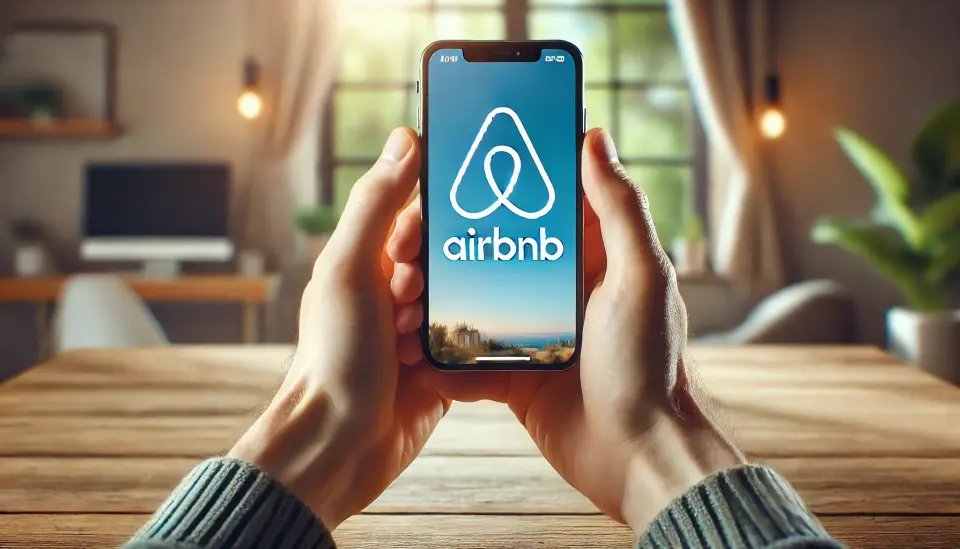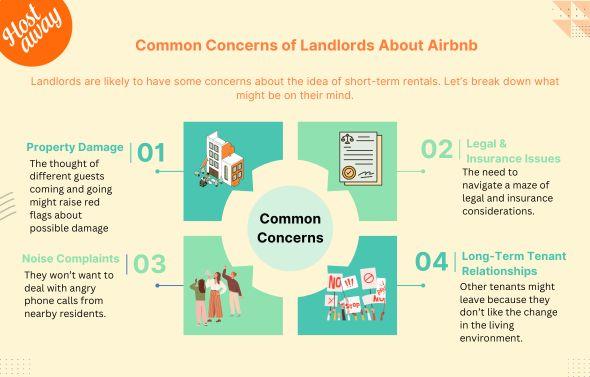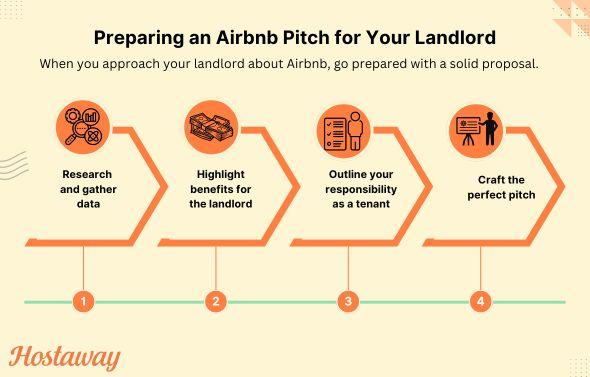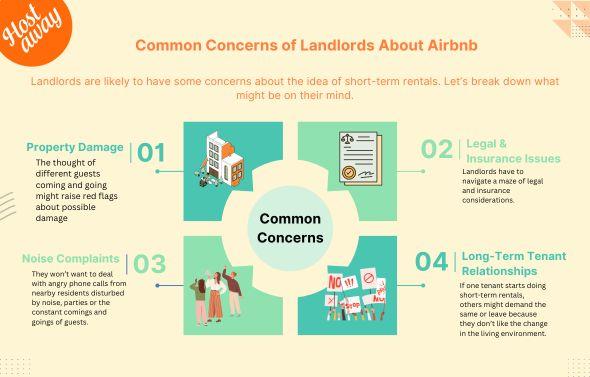How to Convince Landlords to Let You Airbnb

Key Takeaways:
Landlords usually worry about property damage, noise, legal risk and neighbor impact, so success starts with understanding and addressing those concerns upfront.
A convincing pitch is built on research: local short-term rental laws, realistic Airbnb income data, and real-world examples from similar properties.
Your proposal should clearly show what’s in it for the landlord, whether that’s profit sharing, higher-quality upkeep, or increased long-term property value.
Taking full responsibility for guest screening, insurance, maintenance, and compliance dramatically lowers perceived risk and builds trust.
Even if the landlord says no, keeping the conversation professional and offering compromises or revisiting later preserves the relationship and future opportunities.
If you’ve Googled “quick ways to make money” or “how to make passive income” you’ve definitely heard an internet guru talk about how they’re living the dream by renting a property long-term and then listing it on Airbnb (aka rental arbitrage).
Getting your landlord on board with the idea of short-term rentals, however, it can be a challenge. They often have valid concerns and convincing them to allow you to list your rental on Airbnb requires a well-thought-out approach. That’s where this article comes in.
We’ll give you practical tips on how to approach your landlord, address their concerns and show them the benefits of allowing short-term rentals. By the end, you’ll be better equipped to turn your rental into a profitable Airbnb listing — without causing any friction with them. Let’s dive in.
Understand the Landlord’s Perspective

Before you approach your landlord about turning your rental into an Airbnb, it’s crucial to step into their shoes for a moment. They have a lot at stake and are likely to have some concerns about the idea of short-term rentals. Let’s break down what might be on their mind.
Common concerns of landlords
1. Potential property damage:
First and foremost, your landlord is likely worried about the physical state of their property. The thought of different guests coming and going might raise red flags about possible damage — anything from scratches on the floors to more serious issues like broken doors and windows.
2. Noise complaints and neighborhood disturbances:
Another big concern is the impact on the neighbors. They won’t want to deal with angry phone calls from nearby residents who are disturbed by noise, parties or constant comings and goings. They need to maintain a good relationship with the community and will be wary of anything that might jeopardize that.
3. Legal and insurance issues:
Landlords have to navigate a maze of legal and insurance considerations. Short-term rentals might bring up questions about zoning laws, HOA rules and even void certain insurance policies. The last thing they want is to find out they’re not covered in case something goes wrong.
4. Impact on long-term tenant relationships:
Finally, they often worry about how allowing Airbnb could affect their relationships with other long-term tenants. If one tenant starts doing short-term rentals, others might demand the same — or worse, they might leave because they don’t like the change in the living environment.
Now that we’ve touched on what might be worrying your landlord, it’s clear why you need to address these issues directly. It’s not just about making a good case for Airbnb—it’s about showing that you understand where they’re coming from.
When you acknowledge their concerns, you’re more likely to build trust and have a productive conversation. This empathy will also help you tailor your pitch to be more convincing. For example, if you know your landlord is particularly concerned about noise, you can proactively suggest quiet hours and guest screening processes.
Prepare a Strong Proposal

When you’re ready to approach your landlord about Airbnb, it’s important to go into the conversation prepared with a solid proposal. Here’s how to do that:
1. Research and gather data
Start by doing your homework:
Local regulations: Make sure you understand the local laws around short-term rentals. Some areas have restrictions or require special permits. Showing that you’re aware of and willing to follow these rules will go a long way in reassuring your landlord.
Market analysis: Look into how much similar properties in your area are earning on Airbnb. If you can show your landlord that there’s real profit potential, they’ll be more likely to consider it.
Case studies: Find examples of other tenants or landlords who have successfully implemented Airbnb in similar properties. This helps show that it’s a viable option.
2. Highlight benefits for the landlord
Now, focus on what’s in it for them:
Increased property value: Explain that Airbnb guests expect a certain level of upkeep, which means you’ll be keeping the place clean and well-maintained. This can actually increase the value of the property.
Profit sharing: Offer to share a portion of the Airbnb profits with your landlord. This can turn the situation into a win-win, where they benefit financially without any extra effort.
Attracting quality tenants: Mention that being able to use Airbnb can attract more reliable, responsible tenants who value flexibility. This could mean a higher demand for their property in the long run.
3. Outline your responsibility as a tenant
Finally, make it clear that you’ll take full responsibility for:
Guest vetting: Commit to thoroughly screening all guests to ensure they’re respectful and responsible. This will help alleviate concerns about potential problems.
Insurance coverage: Offer to take out additional insurance to cover any possible damages. This shows that you’re serious about protecting the property.
Maintenance and quick resolutions: Assure your landlord that you’ll handle all maintenance and quickly address any issues that come up keeping their property in top shape. If you already have a plan go the extra mile and tell them exactly how.
4. Craft the pitch
Once you’ve done your research, it’s time to present your case to your landlord. Here’s how to make sure your pitch is strong and convincing:
Send in a formal written proposal:
Start by putting together a professional, well-structured written proposal. Keep it clear and concise. Include all points covered above. Make sure your proposal highlights why this is a good idea for both you and your landlord.
Follow it up with an in-person discussion:
After sending your proposal, make sure to meet with your landlord in person. This shows you’re serious and allows you to address any concerns directly. During the discussion, be confident but also listen carefully. It’s important to be understanding and treat this as a conversation, not just a pitch. If they have reservations, don’t be discouraged—use it as a chance to show how prepared you are and be open to negotiating terms that work for both of you.
Offer incentives:
To sweeten the deal, consider offering incentives. You could propose increasing the rent slightly or offering a share of the Airbnb profits. These options can make the idea more appealing to your landlord, as they directly benefit from the arrangement.
Make sure whatever you offer doesn’t cut too deeply into your potential earnings. The goal is to make the proposal attractive to your landlord while still making it worthwhile for you.
Next Steps - Once You Convince your Landlord

Review your lease agreement:
Your existing lease agreement probably has specific rules about subletting or making changes to the property. Make sure you fully understand these clauses and make changes to them in agreement with the landlord. Be aware of any potential risks, like fines or eviction, if you go against the lease terms. Knowing this upfront helps you avoid problems down the line.
Think about insurance and liability
It’s wise to get extra insurance that covers short-term rentals. This protects both you and your landlord in case of any accidents or damages. Make sure to communicate this to your landlord to reassure them and score some brownie points.
Ensure compliance with local laws
Check the local rules about short-term rentals. Some places have strict regulations and you’ll need to comply with them to avoid fines or other penalties. Offer to take care of any paperwork or permits required. This shows your landlord that you’re proactive and responsible, making it easier for them to say yes to your Airbnb plan.
Build trust with your landlord
Gaining your landlord’s trust is key to getting their approval for Airbnb. Start by showing that you’re a responsible tenant. If possible, provide references from previous landlords or share examples of how you’ve been a dependable tenant. This could include things like keeping the property in good condition or being proactive about minor repairs.
Secondly, offer to keep them in the loop with regular updates about your Airbnb activities via a monthly email or a quick chat. Make it clear that you’re open to discussing any concerns they might have as you go along. Lastly, remind them of your history of timely rent payments and open communication. A proven track record helps reassure them that you’ll handle the property responsibly too.
Contingency Plans - What to Do If the Landlord Says No
If your landlord turns down your Airbnb proposal, don’t take it personally. It’s important to handle the situation gracefully. Accept their decision without pushing back too hard and keep the relationship positive. This leaves the door open for future discussions.
If you feel like your landlord wasn’t completely against the idea and there is a little legroom for negotiation, consider exploring alternatives. For example, if a full Airbnb setup isn’t an option, suggest a compromise, like renting out your space only during certain times of the year. If that doesn’t work, you might also look into finding a different property where Airbnb is allowed.
Circumstances can change, so don’t be afraid to bring up the idea again later. If you notice changes in the rental market, your landlord’s situation or even local regulations, it might be a good time to revisit your Airbnb idea. Just be sure to go backed with updated information and a refreshed proposal that addresses any concerns they had the first time around.
Make It Happen
Winning your landlord over to the idea of Airbnb might seem daunting, but with the right strategy, it’s within reach. By addressing their concerns, presenting a well-thought-out plan and building trust, you’re setting the stage for a successful partnership. Even if they’re hesitant at first, staying respectful and open-minded keeps the possibility alive. With a little patience and negotiation, you could be on your way to turning your rental into a profitable Airbnb venture.
Ready to find out how Hostaway can transform your business?
